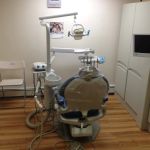How to Prevent Tooth Decay During Pregnancy
During pregnancy, your body undergoes many changes, and while most people are aware of the importance of taking care of their health and nutrition, dental health is often overlooked. However, maintaining good oral hygiene during pregnancy is crucial not only for your health but also for the health of your baby. Tooth decay, gum disease, and other oral health problems can occur more easily during this time, but with proper care and attention, they can be prevented. In this article, we will guide you through effective ways to prevent tooth decay during pregnancy, discuss the causes of oral health issues during pregnancy, and provide tips for maintaining healthy teeth and gums while expecting.
1. Why Is Dental Health Important During Pregnancy?
Pregnancy can bring a variety of changes to your body, and this includes hormonal shifts that may impact your oral health. Increased levels of hormones such as progesterone and estrogen can cause the gums to become more sensitive, leading to conditions such as pregnancy gingivitis, which can cause swollen, bleeding gums. Additionally, pregnancy cravings, especially for sugary or acidic foods, can contribute to an increased risk of cavities.
Furthermore, untreated tooth decay or gum disease can lead to serious health problems. Studies have shown that poor oral health during pregnancy can increase the risk of premature birth, low birth weight, and even gestational diabetes. By preventing tooth decay and keeping your gums healthy, you are not only safeguarding your smile but also reducing potential risks to your baby’s health.
2. The Link Between Pregnancy and Oral Health Problems
During pregnancy, there are a few factors that can contribute to oral health problems:
- Increased Hormonal Levels: The body’s higher levels of estrogen and progesterone can cause changes in the gums and increase their sensitivity. This can make them more prone to infection, inflammation, and bleeding.
- Morning Sickness: Morning sickness, which often involves nausea and vomiting, can lead to acid reflux. The stomach acids from vomiting can wear down tooth enamel and cause erosion, making teeth more susceptible to decay.
- Food Cravings and Snacking: Many pregnant women experience cravings for sugary or acidic foods. Consuming these foods frequently throughout the day can increase the risk of cavities and tooth decay.
- Changes in Saliva Production: Pregnancy can also affect the production of saliva. Lower saliva production can make the mouth drier, reducing its ability to naturally wash away food particles and neutralize acids.
Recognizing these changes and understanding how they affect your oral health is the first step in preventing tooth decay and maintaining healthy teeth and gums during pregnancy.
3. Effective Ways to Prevent Tooth Decay During Pregnancy
Now that you understand the connection between pregnancy and oral health issues, let’s explore practical steps you can take to prevent tooth decay and maintain good dental hygiene throughout your pregnancy:
3.1. Maintain a Consistent Oral Hygiene Routine
One of the most effective ways to prevent tooth decay is to brush your teeth twice a day with fluoride toothpaste. Make sure to use a soft-bristled toothbrush and brush for at least two minutes to effectively remove plaque and food particles. Don’t forget to floss daily to remove any food or plaque buildup between your teeth that your toothbrush can’t reach. Proper oral hygiene will help prevent cavities and gum disease, both of which can be exacerbated during pregnancy.
3.2. Visit Your Dentist Regularly
It’s important to schedule regular dental checkups during pregnancy. Dentists can provide preventive care, check for signs of tooth decay or gum disease, and give you guidance on maintaining good oral health. If you’re planning to have dental work done during pregnancy, it’s best to avoid any elective procedures during the first trimester and ensure that your dentist is aware of your pregnancy. However, routine cleanings and exams are generally safe during pregnancy and can help catch issues early.
3.3. Watch Your Diet
What you eat plays a significant role in your oral health. During pregnancy, try to maintain a balanced diet that includes plenty of calcium, vitamin D, and other nutrients essential for healthy teeth and bones. Calcium helps strengthen your teeth and gums, while vitamin D aids in calcium absorption. It’s also crucial to avoid frequent snacking on sugary or acidic foods, as these can contribute to tooth decay. If you do crave sugary snacks, try to eat them with meals to minimize their effect on your teeth.
3.4. Rinse with Water After Vomiting
If you experience morning sickness or nausea, it’s essential to rinse your mouth with water after vomiting to remove stomach acid that can damage your tooth enamel. Instead of brushing your teeth immediately after vomiting (as this can further damage the enamel), rinse your mouth with water or a mouthwash designed for enamel protection.
3.5. Use a Straw for Acidic Drinks
If you enjoy juices or drinks that are acidic, such as citrus juices or soda, consider using a straw. This simple trick helps reduce the exposure of your teeth to acidic liquids, minimizing the risk of enamel erosion. Also, try to limit your intake of sugary or acidic drinks, as they can accelerate tooth decay.
4. Pregnancy-Specific Oral Care Tips
Aside from the general oral care advice mentioned above, here are a few pregnancy-specific tips to keep in mind:
- Stay Hydrated: Drink plenty of water throughout the day to help maintain a healthy saliva flow. Saliva plays a vital role in keeping your mouth clean and neutralizing acids.
- Address Pregnancy Gingivitis: If you notice that your gums are swollen or bleed easily, make sure to see your dentist for advice. This condition is common during pregnancy but can be managed with proper oral care.
- Consider Calcium Supplements: If you’re not getting enough calcium through your diet, talk to your healthcare provider about taking a calcium supplement to help support your teeth and gums.
5. Can Tooth Decay During Pregnancy Affect Your Baby?
While tooth decay itself doesn’t directly affect your baby, untreated dental problems during pregnancy can lead to complications that may pose risks to both you and your baby. Gum disease, in particular, has been linked to premature birth and low birth weight. By taking steps to prevent tooth decay and gum disease during pregnancy, you can ensure both your health and the health of your baby.
Taking care of your oral health during pregnancy is essential for both you and your baby’s well-being. By following the tips outlined in this article, you can reduce the risk of tooth decay, gum disease, and other dental issues while maintaining a healthy smile throughout your pregnancy.







 ChapCare by AltaMed Medical and Dental Group — Pasadena, Fair Oaks3.0 (47 review)
ChapCare by AltaMed Medical and Dental Group — Pasadena, Fair Oaks3.0 (47 review) Nanuet Family Dentistry: Dr. Srinivasa5.0 (2 review)
Nanuet Family Dentistry: Dr. Srinivasa5.0 (2 review) Sea of Smiles Pediatric Dentistry4.0 (585 review)
Sea of Smiles Pediatric Dentistry4.0 (585 review) Campfire Smiles Pediatric Dentistry5.0 (145 review)
Campfire Smiles Pediatric Dentistry5.0 (145 review) Absolute Dental - Aliante4.0 (910 review)
Absolute Dental - Aliante4.0 (910 review) Buena Park Smile Dental Group4.0 (37 review)
Buena Park Smile Dental Group4.0 (37 review) The Importance of Oral Health Education During Pregnancy for a Healthy Pregnancy
The Importance of Oral Health Education During Pregnancy for a Healthy Pregnancy Best Tips for Brushing Your Teeth Properly for Healthy Gums: Essential Techniques for Oral Health
Best Tips for Brushing Your Teeth Properly for Healthy Gums: Essential Techniques for Oral Health Why Skipping Dental Checkups Can Lead to Bigger Oral Health Problems
Why Skipping Dental Checkups Can Lead to Bigger Oral Health Problems Advantages of Porcelain Dental Restorations
Advantages of Porcelain Dental Restorations How Can Diabetes Cause Tooth and Gum Problems? Preventing and Managing Oral Health Issues
How Can Diabetes Cause Tooth and Gum Problems? Preventing and Managing Oral Health Issues Healthy Habits for Promoting Good Oral Health and Hygiene: Tips for a Healthy Smile
Healthy Habits for Promoting Good Oral Health and Hygiene: Tips for a Healthy Smile